DOHA ABDELGAWAD is a Ph.D. student in the department of Political Science and International Relations at the University of Warwick, and a Teaching Assistant in the Department of Political Science, Cairo University. She wrote her M.A. thesis at the American University in Egypt on generational politics within the Egyptian Muslim Brotherhood movement, which was published in a book in 2012. In addition, she acquired a diploma in the field of public policy the same year. During her graduate study, Dr. Abdelgawad developed an interest in the study of political Islam, and theories of the state. She is currently working on the discourse of Egyptian Islamic -oriented youth regarding the nation state, democracy, and secularism
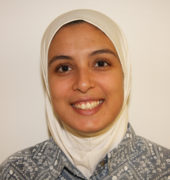
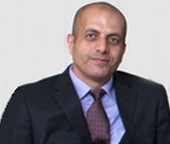
AHMAD ATIF AHMAD is a Professor of Religious Studies with an area focus of Near Eastern Languages and Civilizations, and Islamic Studies at the University of California Santa Barbara. He received his Ph.D. from Harvard University. The questions of what law is for, where its legitimacy comes from, how it could be known, and how it evolves over time are exciting to him in their general form. In his research and teaching, Dr. Ahmad focuses on medieval Islamic law and modern Egyptian law. Being in the department of Religious Studies has exposed Dr. Ahmad to an array of views on the intersections among law, philosophy, and social knowledge.
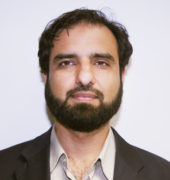
OVAMIR ANJUM is the Imam Khattab Endowed Chair of Islamic Studies at the Department of Philosophy and Religious Studies at University of Toledo. He obtained his Ph.D. in Islamic Intellectual history in the Department of History, University of Wisconsin-Madison, and Masters in Social Sciences from the University of Chicago and Masters in Computer Science from the University of Wisconsin-Madison. He is the author of Politics, Law and Community in Islamic Thought: The Taymiyyan Moment (Cambridge University Press, 2012). He is near-completing a decade-long project to translate a popular Islamic spiritual and theological classic, Madarij al-Salikin (Ranks of Divine Seekers) by Ibn al-Qayyim (d. 1351)
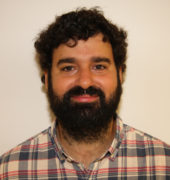
Alexandre Caeiro is Assistant Professor at the Qatar Faculty of Islamic Studies – Hamad Bin Khalifa University, where he coordinates the MA Program in the Study of Contemporary Muslim Thought and Societies. He was trained in sociology and in Islamic studies in France and in the Netherlands. His research deals broadly with the transformations of Islamic law in modern contexts. He is currently working on two book projects. The first draws on his PhD dissertation and examines the emerging Islamic jurisprudence of minorities in light of European debates about the integration of Muslims. The second, developed in Cairo and Doha, investigates the causes and solutions to the “chaos of fatwas” in the contemporary Arab world.
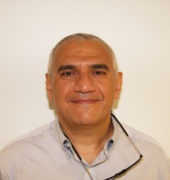
MOHAMMAD H. FADEL is Associate Professor at the Faculty of Law. Professor Fadel wrote his Ph.D. dissertation on legal process in medieval Islamic law while at the University of Chicago. Professor Fadel was admitted to the Bar of New York in 2000 and practiced law with the firm of Sullivan & Cromwell LLP in New York, New York, where he worked on a wide variety of corporate finance transactions and securities-related regulatory investigations. Professor Fadel also served as a law clerk to the Honorable Paul V. Niemeyer of the United States Court of Appeals for the 4th Circuit and the Honorable Anthony A. Alaimo of the United States District Court for the Southern District of Georgia. Professor Fadel has published numerous articles in Islamic legal history and Islam and liberalism.
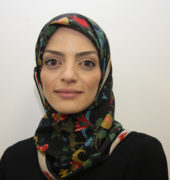
Dalia F. Fahmy is assistant professor of political science at LIU Brooklyn. She received her B.A. from New York University in politics and Middle Eastern studies, with a minor in peace and global policy studies. Dr. Fahmy then completed an M.A. from New York University in international relations. While pursuing her Ph.D. in political science at Rutgers University, she earned a second M.A. in comparative politics. Dr. Fahmy’s current research examines the intellectual and political development of modern Islamist movements. Her specialties include politics of the Middle East, U.S. Foreign Policy, Political Islam, and democratization.
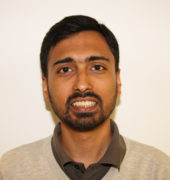
Shoaib Ghias completed his J.D. and Ph.D. in jurisprudence and social policy at the University of California, Berkeley. His dissertation, “Defining Shariʿa: The Politics of Islamic Judicial Review,” won the 2016 Aaron Wildavsky Award for Best Dissertation on Religion and Politics from the American Political Science Association. His work is at the intersection of public law, comparative politics and religion in South Asia in comparative perspective with the intellectual history and political developments in the Middle East. He is currently working on a book project exploring the role of ʿulama, judges and political regimes in negotiating the meaning of shariʿa, focusing on the politics and jurisprudence of the Federal Shariat Court and the Supreme Court of Pakistan from 1980 to 2010. His articles and book chapters have appeared in Law and Social Inquiry, Berkeley Journal of International Law, Contemporary Islamic Finance (Wiley & Sons, 2013, ed. Hunt-Ahmed) and Fighting for Political Liberalism in the British Post-Colony (Cambridge University Press, 2012, eds. Halliday, Karpik and Feeley). His work has also received awards and honorable mentions from the American Bar Foundation and the American Society of Comparative Law.
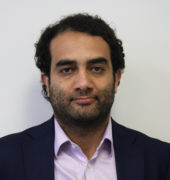
Shadi Hamid is a senior fellow at the Brookings Institution and the author of the new book Islamic Exceptionalism: How the Struggle Over Islam is Reshaping the World (St. Martin’s Press). He is also a contributing writer for The Atlantic. His previous book Temptations of Power: Islamists and Illiberal Democracy in a New Middle East (Oxford University Press) was named a Foreign Affairs Best Book of 2014. An expert on Islamist movements, Hamid served as director of research at the Brookings Doha Center until January 2014. His articles have appeared in The New York Times, The Washington Post, Foreign Affairs, Foreign Policy, The National Interest, TIME, as well as in academic journals. He has been a guest on such programs as the PBS NewsHour, The Charlie Rose Show, CNN’s The Situation Room with Wolf Blitzer, NBC Nightly News, MSNBC’s Morning Joe, and CNN GPS with Fareed Zakaria. Hamid received his B.S. and M.A. from Georgetown University’s School of Foreign Service, and his Ph.D. in political science from Oxford University.
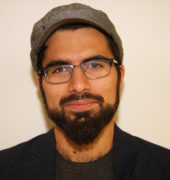
Basit Kareem Iqbal is an academic editor and a PhD student in the Department of Anthropology and the Program in Critical Theory at UC Berkeley. His work addresses the contemporary inheritance of Islamic traditions, generally concerning questions of temporality and genre raised and ruined in the Levantine/Mediterranean articulation of theodicy and migration. His multi-sited dissertation fieldwork will explore formations of religious humanitarianism amid the European refugee crisis. Recent publications include “Agamben and the Legal Consummation of Sunni Islam” (forthcoming in the Journal of Religion), “Disenchantment Politics, Tragedy of Secularism” (under review), and editorial contributions to the Integrated Encyclopedia of the Qur’an (vols. 1-2).
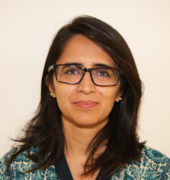
HUMEIRA IQTIDAR is a Senior Lecturer in Politics of South Asia and Chair of the Graduate Exam Board. She is also the Principal Investigator for the European Research Council funded project Tolerance in Contemporary Muslim Politics: Political Theory beyond the West and Co-Convenor for the London Comparative Political Theory Workshop. Dr Humeira Iqtidar joined King’s College London in 2011. She has studied at the University of Cambridge (UK), McGill University (Canada) and Quaid-e-Azam University (Pakistan). Before joining King’s, Humeira was based at the University of Cambridge as a fellow of King’s College and the Centre of South Asian Studies.
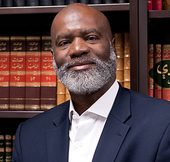
SHERMAN JACKSON is the King Faisal Chair of Islamic Thought and Culture, and Professor of Religion and American Studies and Ethnicity at the University of Southern California (USC). He was formerly the Arthur F. Thurnau Professor of Near Eastern Studies and Visiting Professor of Law and Professor of Afro-American Studies at the University of Michigan (Ann Arbor). Dr. Jackson received his Ph.D. from the University of Pennsylvania and has taught at the University of Texas at Austin, Indiana University, Wayne State University and the University of Michigan. From 1987 to 1989, he served as Executive Director of the Center of Arabic Study Abroad in Cairo, Egypt. His research interests begin in classical Islamic Studies, including law, theology and intellectual history, and extend to placing this legacy in conversation with the realities of modern Islam in the West, most especially Muslim communities in America. This implicates issues of race, immigration, liberalism, democracy, religion in the modern world, pluralism, constitutionalism, Muslim radicalism and related areas of inquiry, again, all in conversation with the classical and post-classical legacies of Islam. He is now in the early stages of a major book, tentatively entitled: Beyond Good and Evil: Shari’ah and the Challenge of the Islamic Secular.
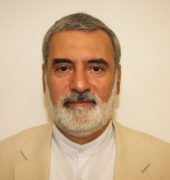
MOHSEN KADIVAR is a research professor of Islamic Studies in the department of religious studies at Duke University. Kadivar studied at the Islamic Seminary at Qom ending with a certificate of Ijtihad, and earned a Ph.D. of Islamic Philosophy and theology from Tarbiate Modarress University in Tehran. He taught for three decades in Iran. Kadivar spent eighteen months in the jail in Tehran (1999-2000) illegally for expressing his religiopolitical thoughts. Specializing in classical Islam and contemporary Islamic thought, his main intellectual interests and topics of publications include: classical Islamic philosophy, classical and modern Shi’a theology and legal theories, and human rights and democracy in Islam. Kadivar published 13 printed books and 11 e-books (after his printed books were banned in Iran in 2009) in Persian and Arabic, and several book chapters in English. Three of his books were translated to Arabic and published in Lebanon. Two of forthcoming English translation of his books: The Right of People in Islam (in UK) and Apostasy, Blasphemy, & Religious Freedom in Islam: A Critique Based on Demonstrative Jurisprudence (in US). His forthcoming book: Islamic Theocracy in A Secular Age: Revisiting Shi’ite Political Theology & Ideology of Islamic Republic of Iran (UNC Press).
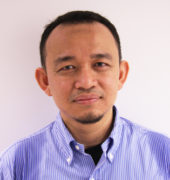
MASZLEE MALIK is Assistant Professor in the Faculty of Islamic Revealed Knowledge and Human Sciences at the International Islamic University Malaysia in Kuala Lampur. He obtained his Ph.D. in the UK in Political Science. Dr. Malik also taught at Durham University from 2008 – 2009. He was invited to be a guest speaker for SOAS summer school on ‘Political Islam’ for two consecutive years, 2009 and 2010. Furthermore, Dr. Malik is also frequently invited as guest speaker by many Malaysian media outlets to talk on the issues relating to Political Islam, Middle Eastern Politics and Arab Spring. His research area is in Islamic jurisprudence, Contemporary Islamic Political Thoughts and Movements and Good Governance. Dr. Malik is currently a senior fellow of IDEAS, Libertarian Think tank in Malaysia, a board member of Istanbul Network for Liberty, the advisor of Manchester City Fan Club Malaysia.
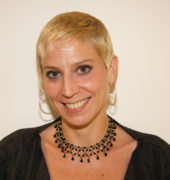
SARAH MARUSEK is a Post-Doctoral Research Fellow in Religion Studies at the University of Johannesburg. She holds a Ph.D. in social science from the Maxwell School of Syracuse University. Her doctoral research and fieldwork focused on Shi‘i Islamic activism in Lebanon. Her work at UJ will build on this research, further looking at religious rationalities, decolonial frameworks, comparing Muslim, Christian and other theologies of liberation, and critically analysing the practices of the charities affiliated with Shi‘i activist movements in Lebanon. Dr. Marusek also researched Islamic activism in New York, Iran and Senegal during her graduate studies. She is co-author of The Henry Jackson Society and the degeneration of British Neoconservatism: Liberal interventionism, Islamophobia and the ‘War on Terror’ and How Israel attempts to mislead the United Nations: Deconstructing Israel’s campaign against the Palestinian Return Centre (Public Interest Investigations, 2015).
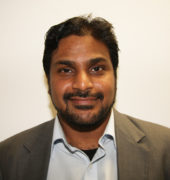
Junaid Quadri is Assistant Professor of History and Religious Studies at the University of Illinois at Chicago, where he also serves as co-director of the Jewish-Muslim Initiative. He holds a PhD from the Institute of Islamic Studies at McGill University for a dissertation examining the entanglement of Islamic law with colonial modernity, as represented in the thought of the Hanafi Mufti of Egypt Muhammad Bakhit al-Muti‘i. In a separate project, he examines the mechanisms through which Islamic legal texts have historically sought to carve out a space for the cultivation of ethical virtues through techniques of habituation and discipline. Quadri has previously been the recipient of fellowships from the American Center for Oriental Research in Amman, Jordan; the American Research Center in Egypt; and the Social Sciences and Humanities Research Council. In the 2014-2015 academic year, he was Visiting Assistant Professor at the Qatar Faculty of Islamic Studies in Doha.
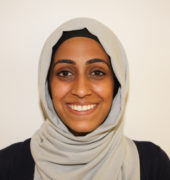
MUNEEZA RIZVI is a Ph.D. student in the Department of Anthropology at the University of California, Davis. Her research focuses on assisted reproductive technologies, Islamic ethics, and secularism in Palestine. Through engagement with contemporary Islamic history and writings her work complicates the nationalist paradigms through which Palestine has typically been understood in scholarly research. Her M.A. paper traced the deployment of sabr – an Islamic concept loosely translated as patience or forbearance – in Palestinian anti-colonial discourses. She argued that sabr, a specific mode of endurance, struggle, life, and survival in contemporary Palestine refers not only to ‘patience’ in the face of colonial violence, but also to social practices as diverse and active as childbearing, militant struggle, and rebuilding after disaster.

Shirin Saeidi is an Iranian-American scholar based in Northern Virginia. She recently completed a post-doctoral fellowship at the Kate Hamburger Kolleg Center for Global Cooperation Research in Duisburg, Germany. She holds a PhD in international studies from Cambridge University, UK (2012). From 2012-2014, she taught at the University of Tehran, one of the few, if not only American citizen to have done so in recent years. Her research evolves out of her broader interest in the categories and the concepts that academics apply to the non-western world. She contributes to this effort by using her in-depth knowledge on the Middle East as a prism to re-examine key aspects of contemporary social and political theory. Her research interests focus on several of interrelated fields of study: the politics of religion and state formation; gender and sexuality; socially embedded citizenship; Iranian nationalism and state-building. In sum, her research is interdisciplinary, and revolves around her desire to understand how people’s agency at the local level influences national and transnational politics in the Middle East. She is on the editorial board of the journal citizenship studies, and has published several pieces on citizenship in post-1979 Iran.
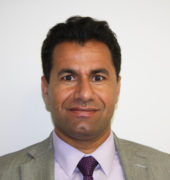
ASAAD AL-SALEH is Assistant Professor of Arabic Literature, Comparative Literature, and Cultural Studies in the Department of Near Eastern Languages and Cultures, Indiana University. His research examines personal narratives in Arabic literature, particularly modern Palestinian autobiographies, dealing with issues related to identity and displacement. His interest in narratives demonstrating the intersection of Arabic literature and political culture resulted in the publication of his book, Voices of the Arab Spring: Personal Stories from the Arab Revolutions (Columbia University Press, 2015). He teaches Arabic Literature courses and classical Islamic texts in Arabic and English, with expertise in Arab Spring, Autobiography, and Literary Theory. In addition to scholarly writing, he contributes opinion pieces in Arabic on political, cultural and religious issues in war-torn Syria, where he was born and raised.
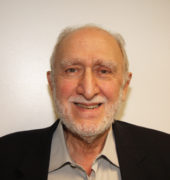
HISHAM ALTALIB is the President of the International Institute of Islamic Thought (IIIT). He was born in Mosul, Nineva, Iraq. He holds a B.Sc. in electrical engineering from Liverpool University, and a Ph.D. in electrical engineering from Purdue University. He has held several positions in various Islamic organizations, including the Muslim Students Association, and the International Islamic Federation of Student Organizations. He is a founding member of the International Institute of Islamic Thought. He is the author of A Training Guide for Islamic Workers, which has been translated into over 20 languages, and Parent-Child Relations: A Guide to Raising Children (IIIT, 2013)>
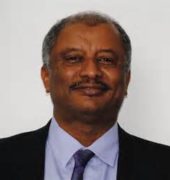
ABUBAKER AL-SHINGIETI is Executive Director of the International Institute of Islamic Thought (IIIT), USA. He has been a Research Associate at the Center for Muslim-Christian Understanding at the Georgetown University School of Foreign Service. He has also served as Vice President at the International Center for Religion and Diplomacy (ICRD). In addition, he was the editor of Islamic Horizons, a monthly magazine of the Islamic Society of North America and was a founding member of the Society for Islamic Thought and Culture in Khartoum, Sudan. Dr. Shingieti earned a B.Sc. (Honors) in Architecture from the University of Khartoum and a Ph.D. in Communications from the University of Massachusetts at Amherst. He launched the Summer Students Program at IIIT back in 2008 in the capacity of Director of Research, which is now being held in various countries across the world. Today’s Fiqh Forum is also taking place at the initiative of Dr. Abubaker, and is the first in a series of future fora to be hosted at IIIT
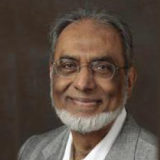
M. YAQUB MIRZA is President and CEO of Sterling Management Group, Inc. Dr Mirza is Chairman of the Board of Trustees of the Amana Mutual Funds, the largest Islamic Fund with Assets 3.3 Billion. Dr. Mirza is also a member of the Board of Directors, University Islamic Financial Corporation, providing Islamic Financing. Mirza is a member of the Board of Trustees, George Mason University Foundation, Inc. He also serves as advisor to the College of Humanities and Social Sciences, George Mason University. He is also a member, Board of Trustees, Finance, Investment and Endowment Committee of Shenandoah University. He holds a Ph.D. in Physics and an M.A. in Teaching Science from the University of Texas at Dallas. He is the author of Five Pillars of Prosperity: Essentials of Faith-Based Wealth Building (White Cloud Press, 2014).
